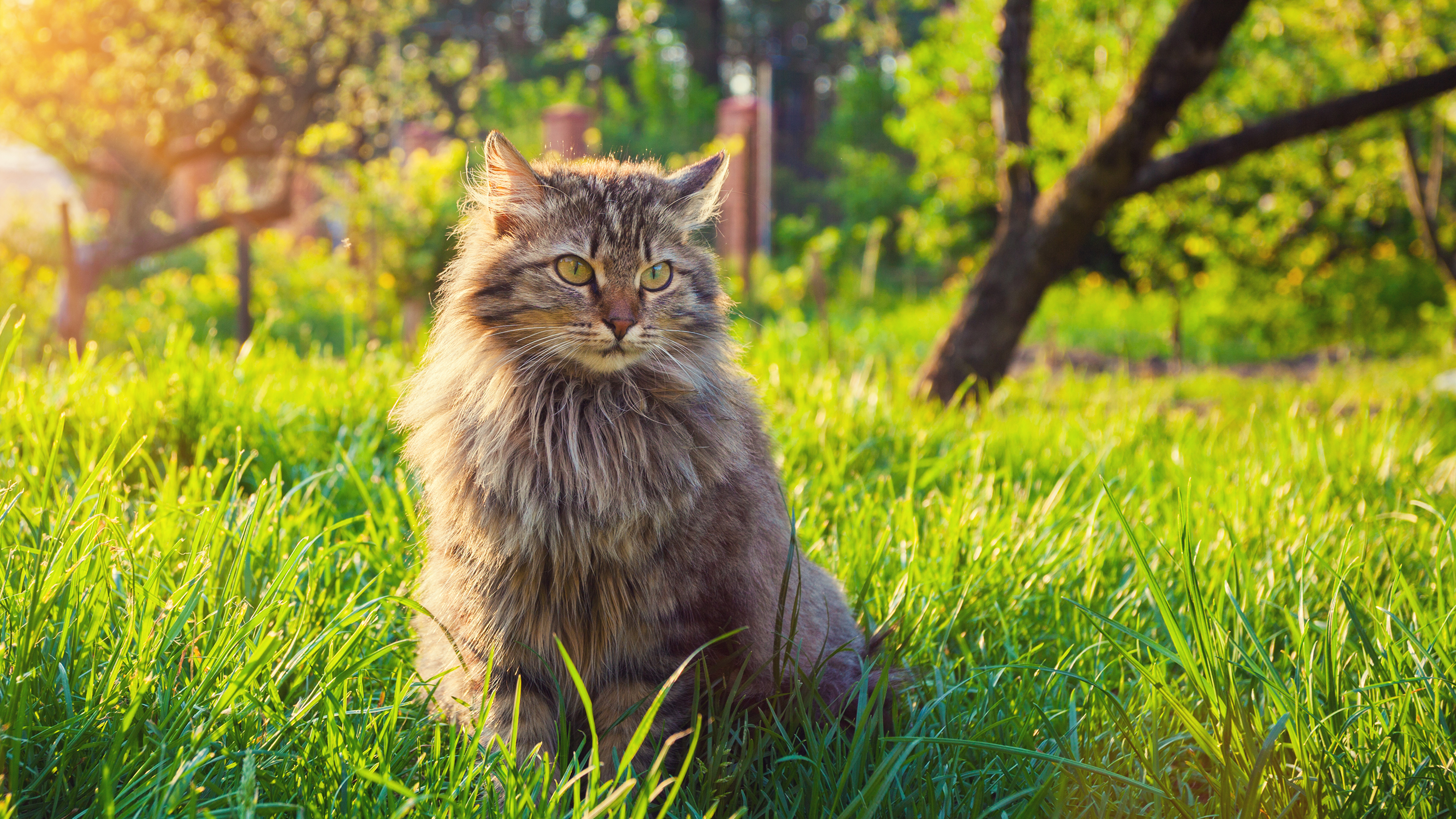
Summer Tips for Cats
As the summer gets into full swing, here are some tips and facts, from how to keep cats cool in summer, and heatstroke to what to do when you're going on holiday.
Heatstroke in cats
While more commonly seen in dogs, heatstroke can affect cats, especially if they are trapped in a hot area such as a conservatory, car, flat or greenhouse.
Heatstroke occurs when the body temperature rises to dangerous levels, and because of the environmental conditions, it is impossible for your cat to get rid of excess heat. This can lead to multiple organ failure and even death and sadly, as temperatures can soar in a matter of minutes, development of heatstroke can happen rapidly.
You can help your cat keep cool by making sure they are never confined somewhere that can get overheated, providing iced water for them to drink, using fans, or air-conditioning to keep the house cool, and keeping doors and windows open (when safe to do so) for a breeze.
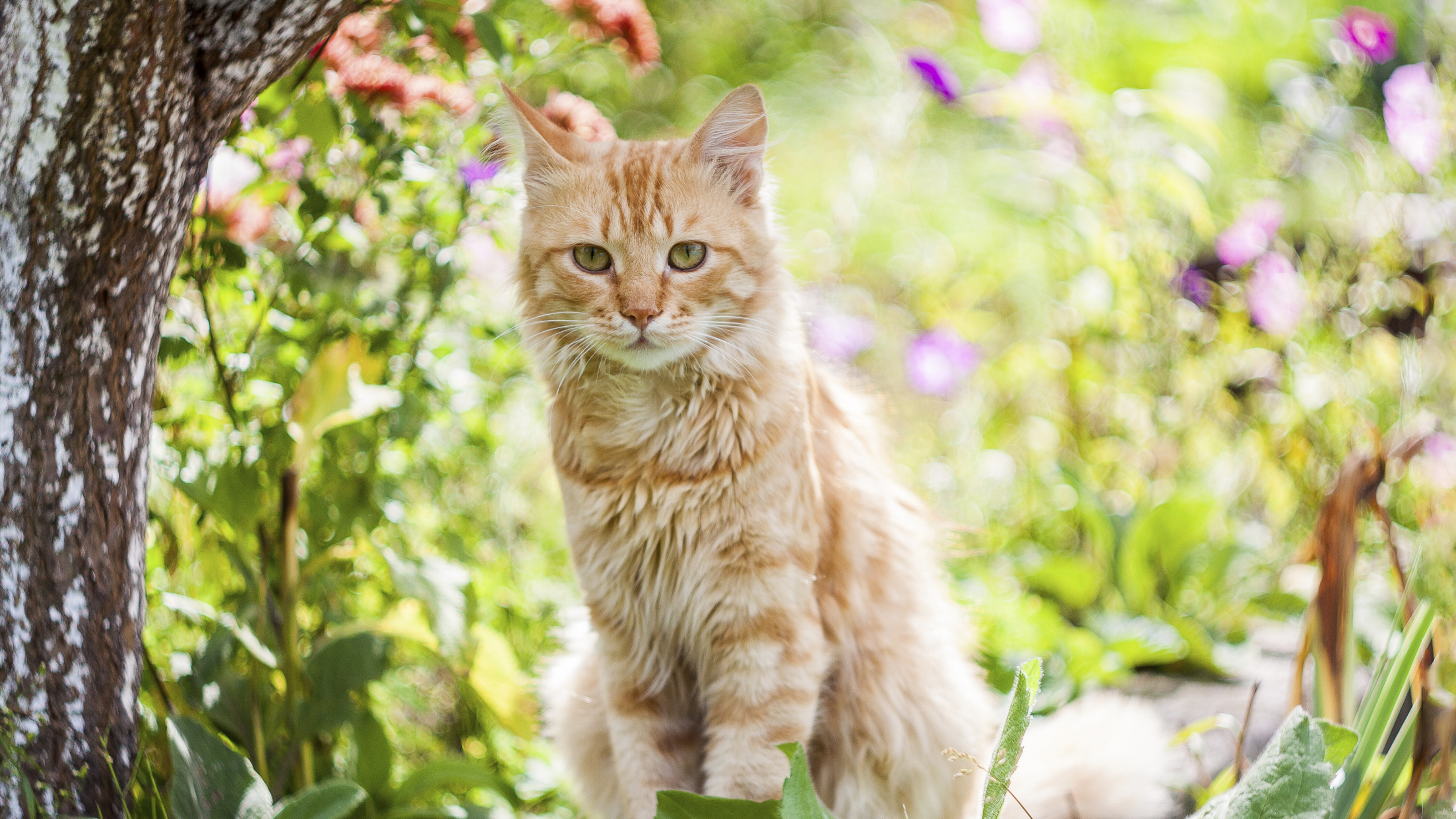
Sunburn in cats
Did you know cats can get sunburn? White or pale coloured cats are most vulnerable to UV radiation from the sun, especially on their noses and ears, as these areas have less protective fur. Sunburn can lead to skin cancer in cats.
The development of cancer often requires surgery for treatment, to remove the affected area.
You can help minimise the risk of sunburn in your cats by keeping them inside on very sunny days. You can also apply cat-friendly sunscreen, especially on their nose and ears, but anywhere the fur is thin needs protection. Cats groom frequently and this can remove sunscreen, so it will need to be topped up regularly.
Early detection is the key to managing skin cancers if they develop, so keep a close eye on your cat, and take them to the vet if you spot any skin changes, wherever they are on their body.
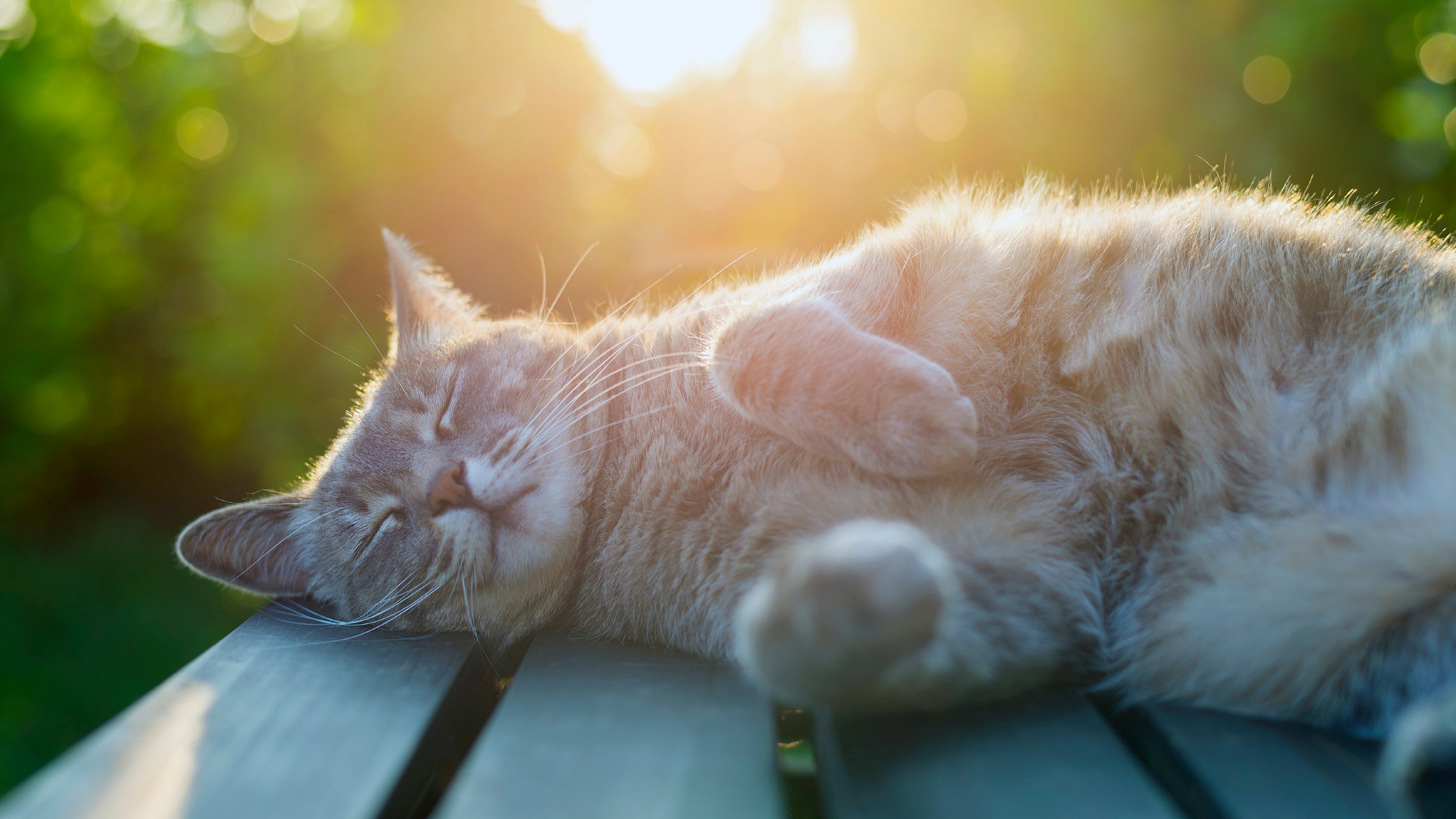
Getting lost and microchipping
In the summer everyone gets warmer, and it is much more likely that doors and windows will be left open, including car doors while packing or washing vehicles, and sheds and garages.
Indoor cats are much more likely to find the opportunity to sneak out in summer – especially as the garden can look a lot more inviting in the summer sun!
Outdoor cats may also have more opportunities to get trapped in cars, sheds, and garages or similar.
Getting your cat microchipped before summer is the best way to permanently identify them, and greatly increases the chances of them being returned to you if they turn up somewhere they shouldn’t be! Collar tags can be a great back up if your cat will wear a collar, but collars should always be safe release rather than buckle, as buckle collars can cause serious injury if they get caught.

Grass seeds
Grass seeds caught in your cat's paws, eyes or ears is a common problem during the summer. Grass seeds are like tiny arrowheads which get stuck into your pet’s coat and can penetrate the skin. In some cases, grass seeds can keep travelling to other areas of the body such as the chest which can make them very difficult to find and remove.
Signs depend on where the grass seed got stuck and can include violent shaking of the head, rubbing at the eyes, chewing at the feet or sudden onset sneezing. Other signs are sudden onset lameness and swelling between the toes.
To help prevent grass seeds from getting stuck, you can trim the fur on your pet's paws and around their ears. Check your cat for grass seeds routinely especially in their ears and between the toes. You can also avoid meadows and woodlands where these grasses commonly grow.
Grass seeds are painful and difficult to remove from sensitive areas. Please contact your local vet if you suspect your pet may have a grass seed stuck.
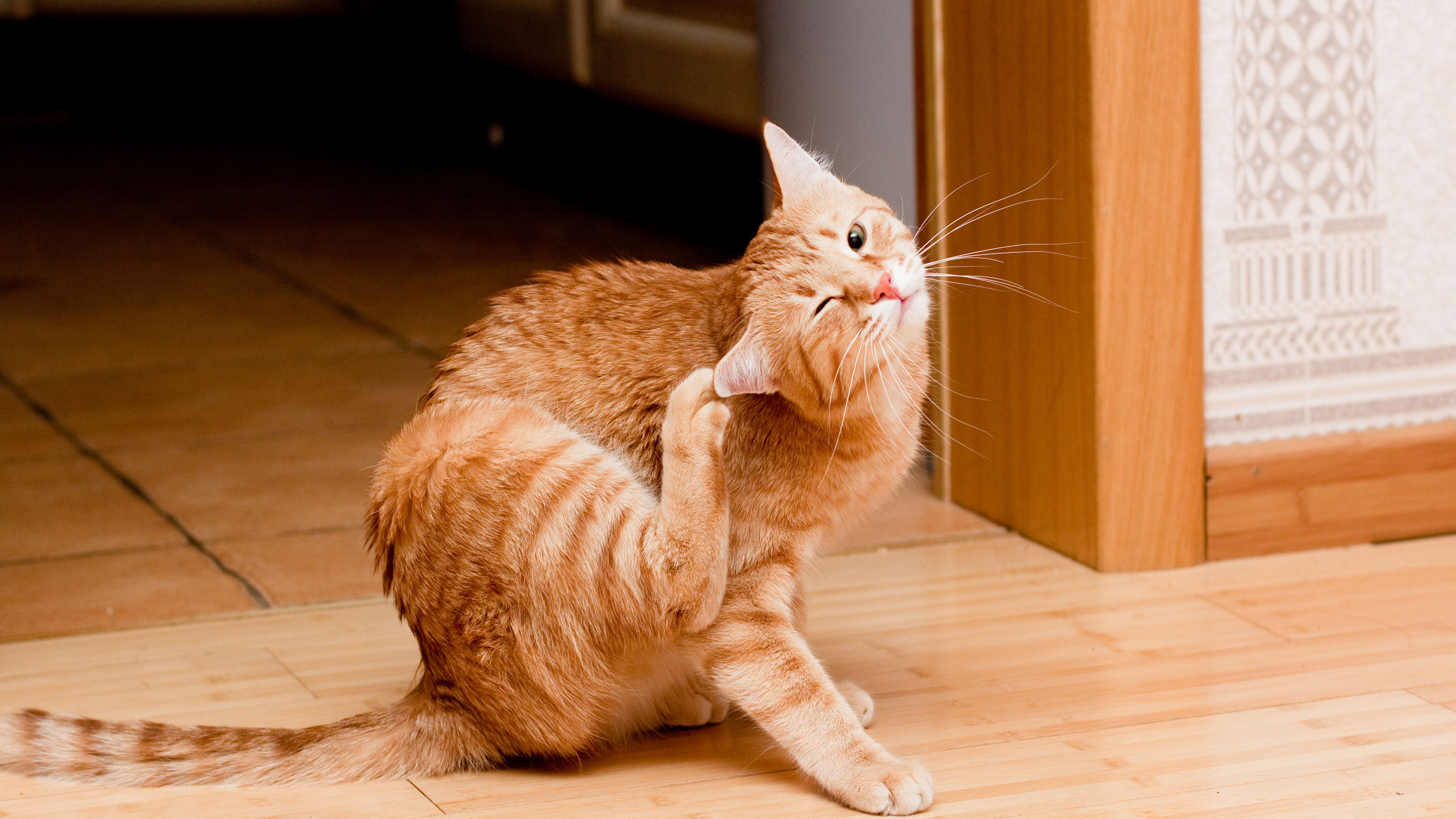
Travelling in the car with your cat
If you are travelling with your cat this summer, then there is much to consider. You’ll want to consider getting a good, secure cat carrier. A small dog crate may be more appropriate for longer journeys.
Your cat can also pick up on your feelings very easily so stay calm to keep them calm.
While we know this for dogs, cats are just as likely to die in hot cars. Keep ventilation at an optimum and never leave your cat in a parked car.
Cat’s senses are extremely sensitive, music at top volume could be torture for your cat.
Even if your cat is an outdoor cat, it is important to keep them indoors when in a new place to avoid cats getting lost or getting into fights.
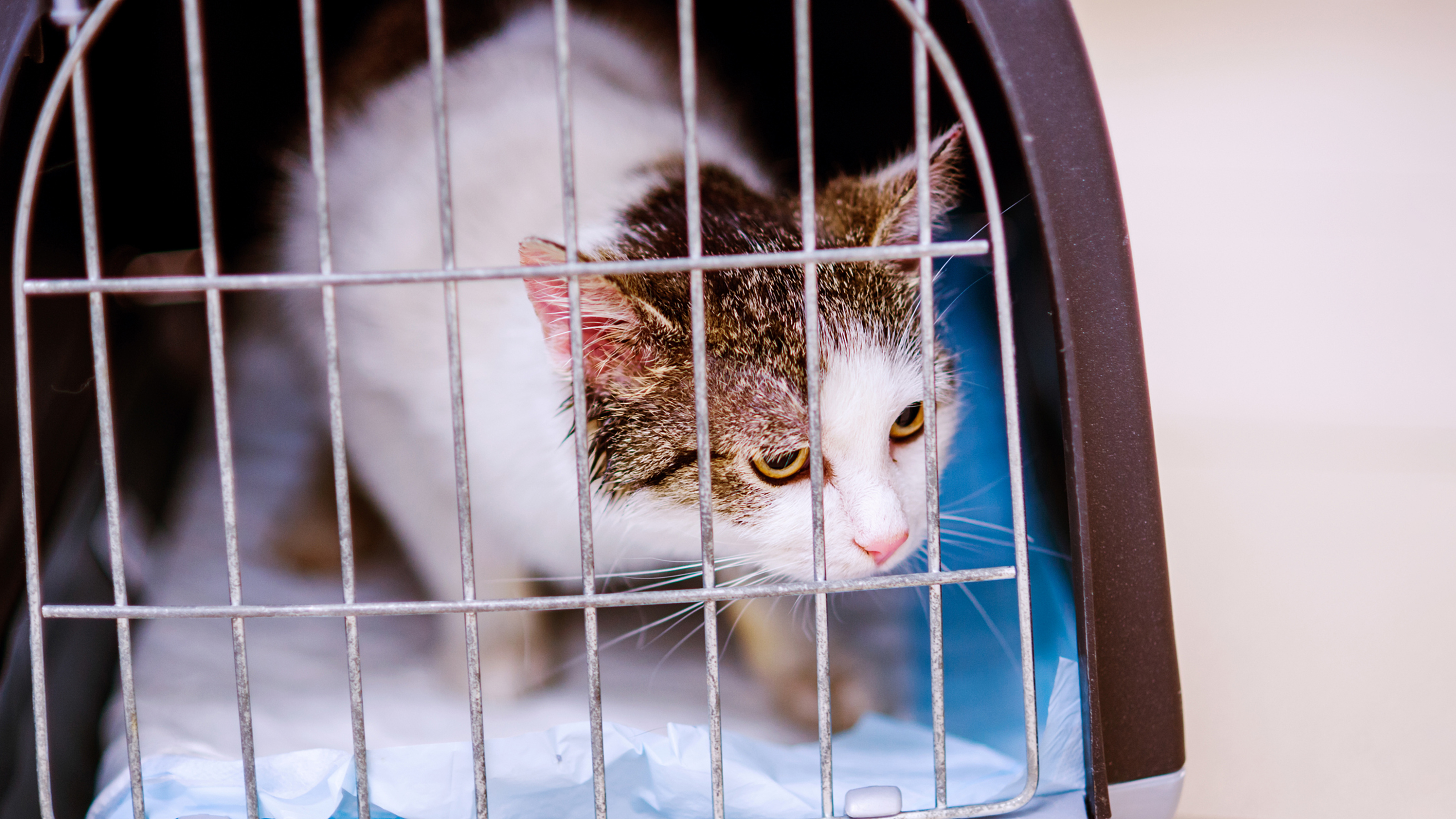
Leaving cats behind
Cats are very territorial and will, in most cases, prefer to stay at home rather than travel or go into a cattery. If you can find a trusted friend, neighbour or family member, or a professional house sitter, to look after your cat in their normal environment while you are away, this is usually best for your cat.
An alternative to at-home care is boarding catteries, where cats are looked after 24/7. You will want to check catteries in advance and recommendations can be a great way to find a trusted cattery – your vet may be able to help, and International Cat Care also have a list of high-standard catteries.
Ensure your cat has been vaccinated, as you will need to provide evidence of this when checking in your cat. It is always worth letting your chosen cattery know your cat’s likes and dislikes. If you have more than one cat then they can be housed together, but if they are separated then be sure to reintroduce them to each other slowly. You can also leave them with their own bedding, toys, food, and litter to help you cat feel secure.
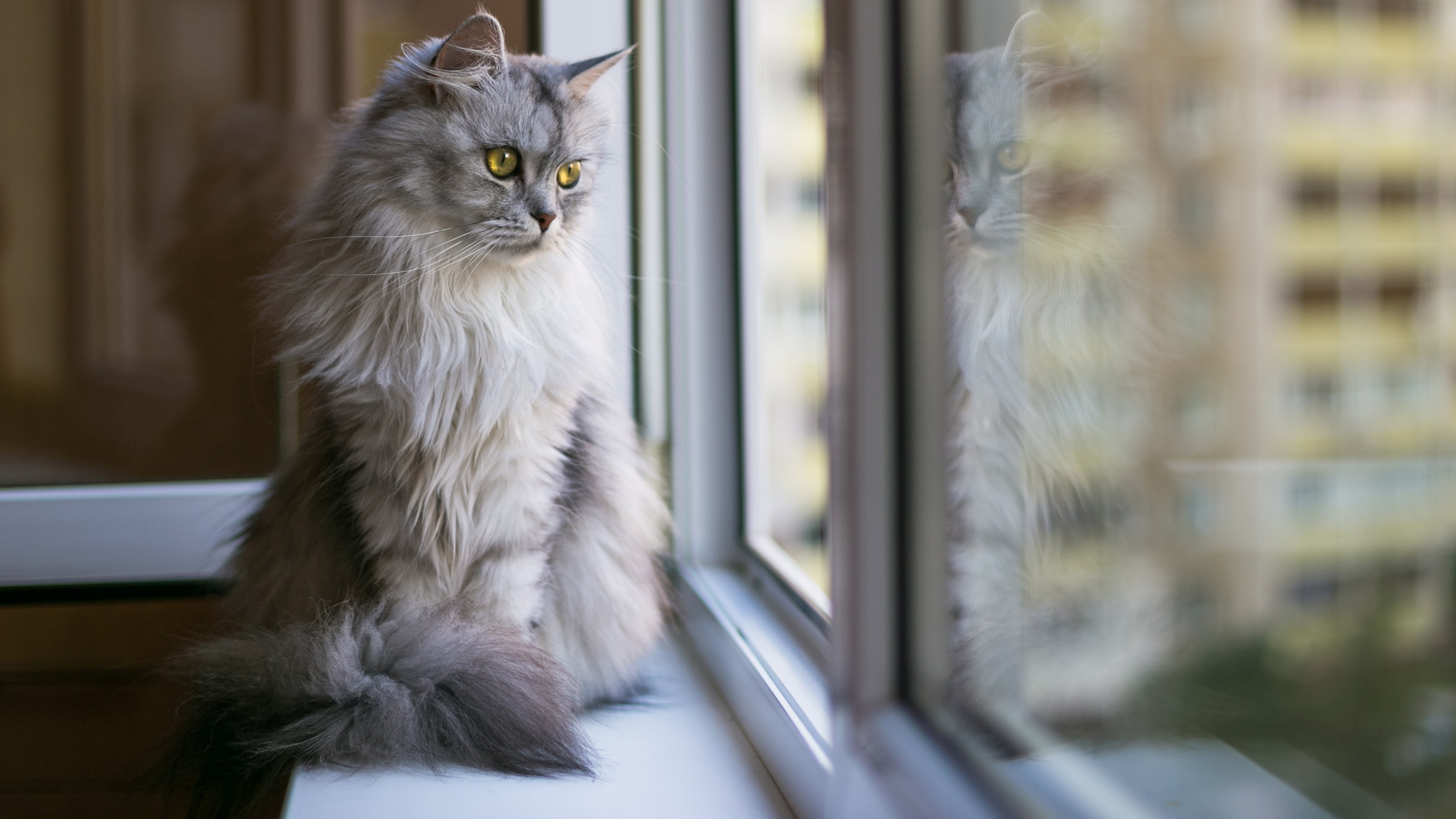
Parasites in cats
While fleas can be a problem year-round, their numbers often see a peak in summer. This is due to the warmer weather, and the increased interactions between cats as they spend more time outdoors.
Tick numbers also rise between spring and autumn, and these nasty bloodsuckers can carry a range of diseases as well as cause irritations of the skin.
Preventing parasites using treatments available from your vet, and as part of our Complete Care Health Plan, is the best way to protect your cat from parasites this summer.
If you do see fleas or ticks, don’t panic! Your vet will be able to help you treat flea infestations, which will involve treating your pets and also your home.
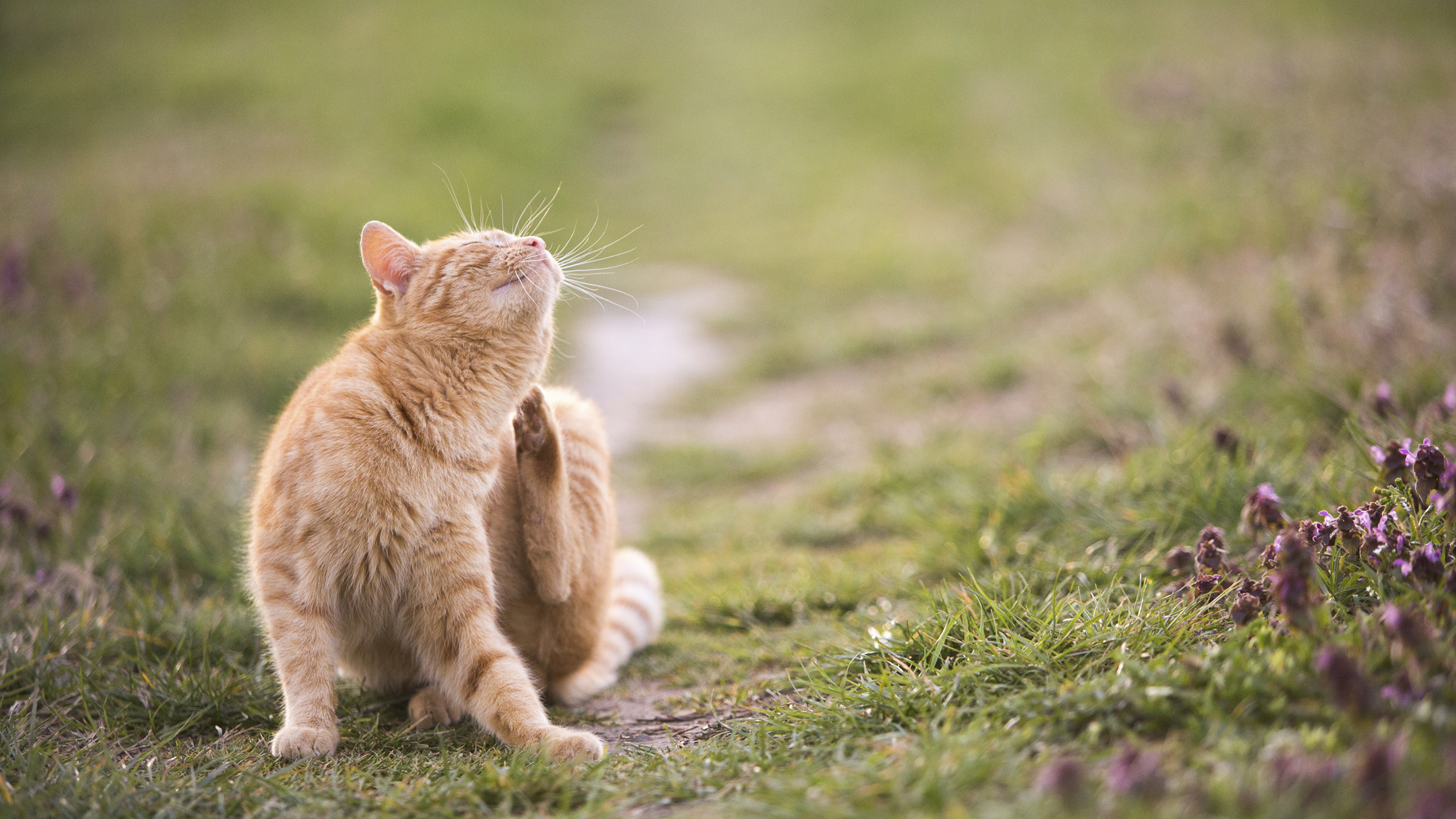
Why do cats moult?
Have you ever noticed that, if your cat sits in your lap to be stroked, they leave behind a haze of shed hairs when they get up again? Or that you can tell where your cat likes to spend the day snoozing because there’s often a slight indentation on your duvet, lined with a shadow of dropped fur?
Some cats have a double coat, meaning they have a soft undercoat of hair to insulate them, and longer hairs, known as guard hairs or a topcoat, that provide physical protection from the environment.
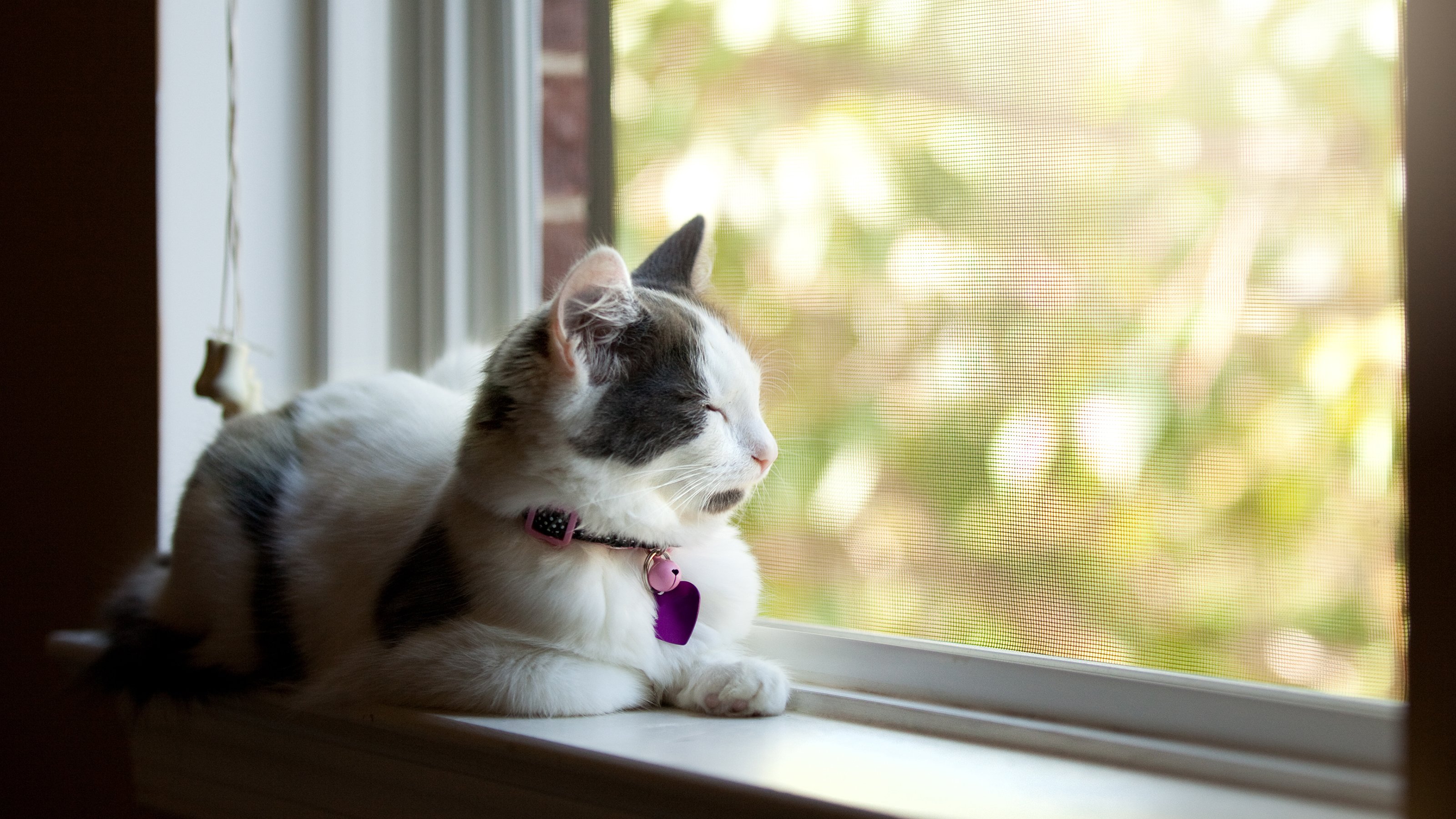
Health Plans to keep your cat healthy
At Vets4Pets we offer a range of Health Plans that make essential routine treatments more affordable. You'll save money on things like annual vaccinations, flea and worm treatment and routine health check-ups.
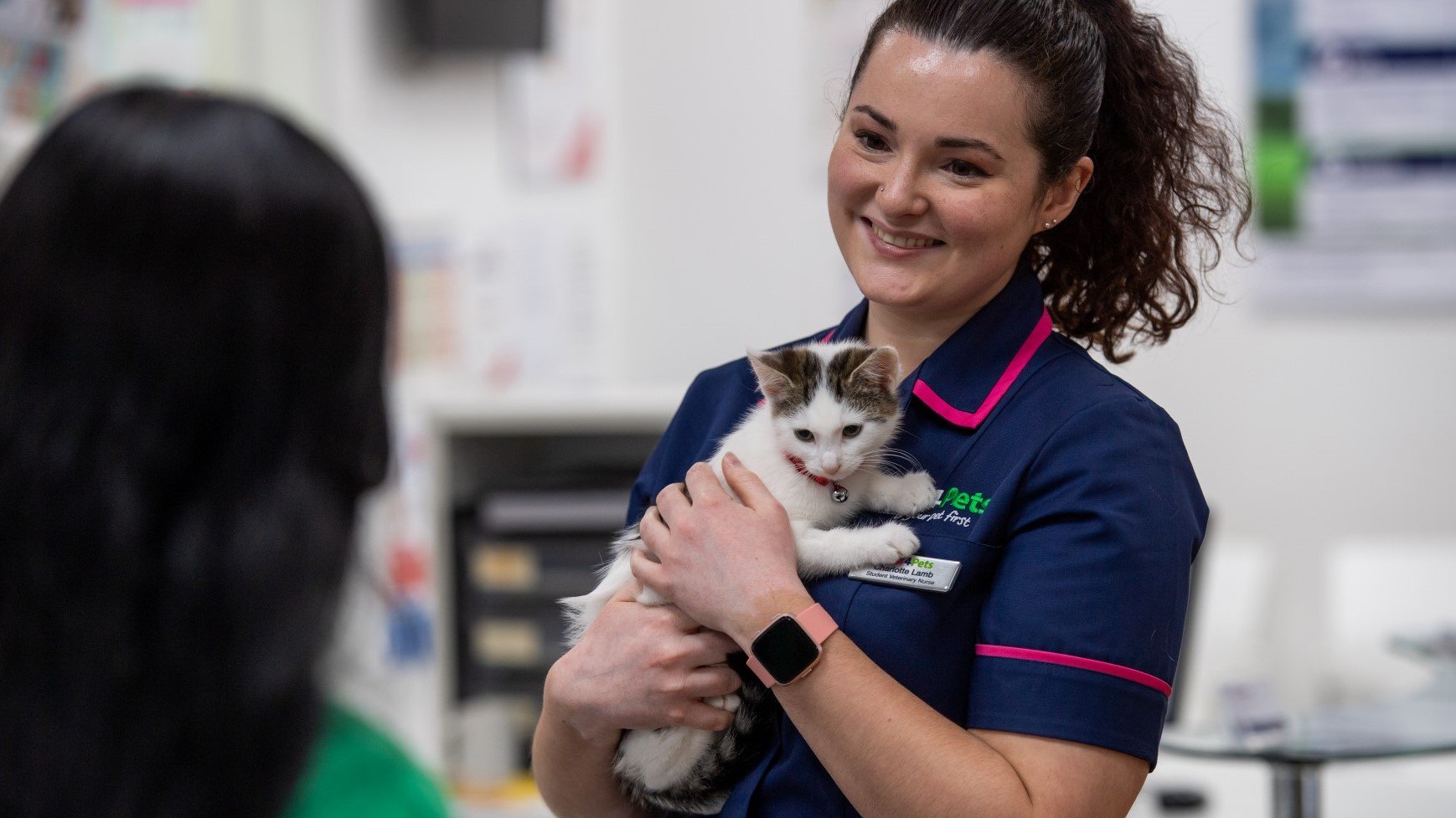
Read more expert pet advice
From healthy diets to preventing fleas, find free and helpful pet health and training advice to care for your pet.
